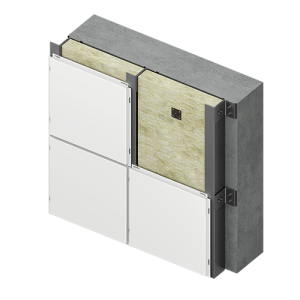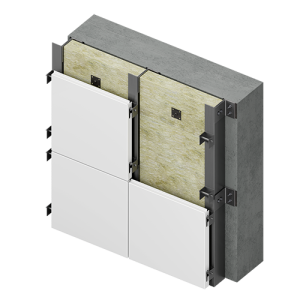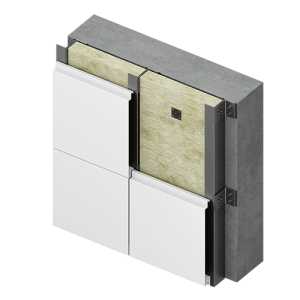Dena Innovative Aluminum Façade Co. (Dalfa) has provided a lot of freedom of action for designers. Our company knows that each project is a unique challenge. Our company can design create facades in unique corners and customize arches in different structures. We can design and implement panel facades in uniform, raised, sunken, and shaded ways, as well as hidden connections at any angle. It’s worth noting that our Dalfa facade systems are eco-friendly, as they absorb energy and use recyclable raw materials, resulting in significant energy savings for the structure.
This not only makes the project more cost-effective but also enhances the building’s functionality. Our Dalfa facade systems can create stunning visual effects by contrasting light and dark elements in the building’s length, width, and height.
Our professional design and engineering team at Dena Innovative Aluminum Facade Co. (Dalfa) works with esteemed designers, architects, and engineers from project conception to implementation, ensuring quality supply and supervision of the facade.
Metal façade systems and their applications
The use of metal in building facades has been common throughout history and remains a valuable resource today.
Metal facades provide a versatile means of changing a building’s appearance in urban environments, creating visually impactful effects.
Those who are knowledgeable about the system of metal facades and their function can effectively utilize them as needed.
If you’re interested in learning more about metal facade systems and their applications, we encourage you to read this article carefully and pay close attention to its contents.
Types of metal facade systems in terms of material
Metal is now commonly used in building facades in various ways. Not only does it enhance the building’s appearance, but it also provides increased durability against different weather conditions. Metal facades are categorized based on material, and we will introduce them to you below.
Iron:
Iron is an affordable and widely used metal due to its resistance to wear and tear. Its malleability and long lifespan make it suitable for creating different alloy compositions for metal facades. Iron is also resistant to rust and corrosion, making it an excellent choice for unfavorable weather conditions.
Aluminum:
In this section of the article, we will discuss the unique features of aluminum for metal facades. Aluminum has an attractive, shiny appearance and is relatively expensive compared to other metals. It is a lightweight metal that is highly durable, making it an excellent choice for many facade systems.
Copper:
Copper is a versatile metal that can be used in a range of colors for metal facades. Although it is not as popular as other metals, it is highly resistant to different weather conditions and is also flexible. Copper can be used to create curved facades for buildings.
Steel:
Steel can be used to create metal facades in three forms: corrugated, stainless, and polished steel. It is highly durable against erosion and also enhances the building’s appearance.
Zinc:
Zinc is a fire-resistant metal that is highly resistant to corrosion, much like steel. Zinc is flexible and can be used to create curved and patterned metal facades. Implementing a zinc metal facade system can help protect the building from fires.
The most important advantages of using the metal facade system
After learning about the different types and functions of metal facade systems, it is essential to understand their advantages. The most significant benefit of metal facade systems is their high resistance and durability. They have excellent color stabilization and can withstand fires, rainfall, and other damaging factors. Properly maintained metal facades can result in significant cost savings over time.
Most metal facade systems are highly paintable and can be customized with different colors. They also help prevent energy wastage, making them a sustainable choice for buildings.
Disadvantages of using the metal facade system
While metal facade systems offer many advantages, they also have some disadvantages to consider. If the metal facade system is not painted correctly or covered with a suitable coating, it can rust over time. During winter, most of these metals have conductive properties, making them difficult to retain heat, resulting in colder buildings and houses.
The system of aluminum metal facades is soft and malleable, which makes it prone to damage from heavy impacts. It’s essential to weigh the pros and cons of using a metal facade system to make an informed decision that meets your needs and budget.
In this article, we’ve provided useful information about metal facade systems and their functions to help you make a better choice and avoid unnecessary expenses.






